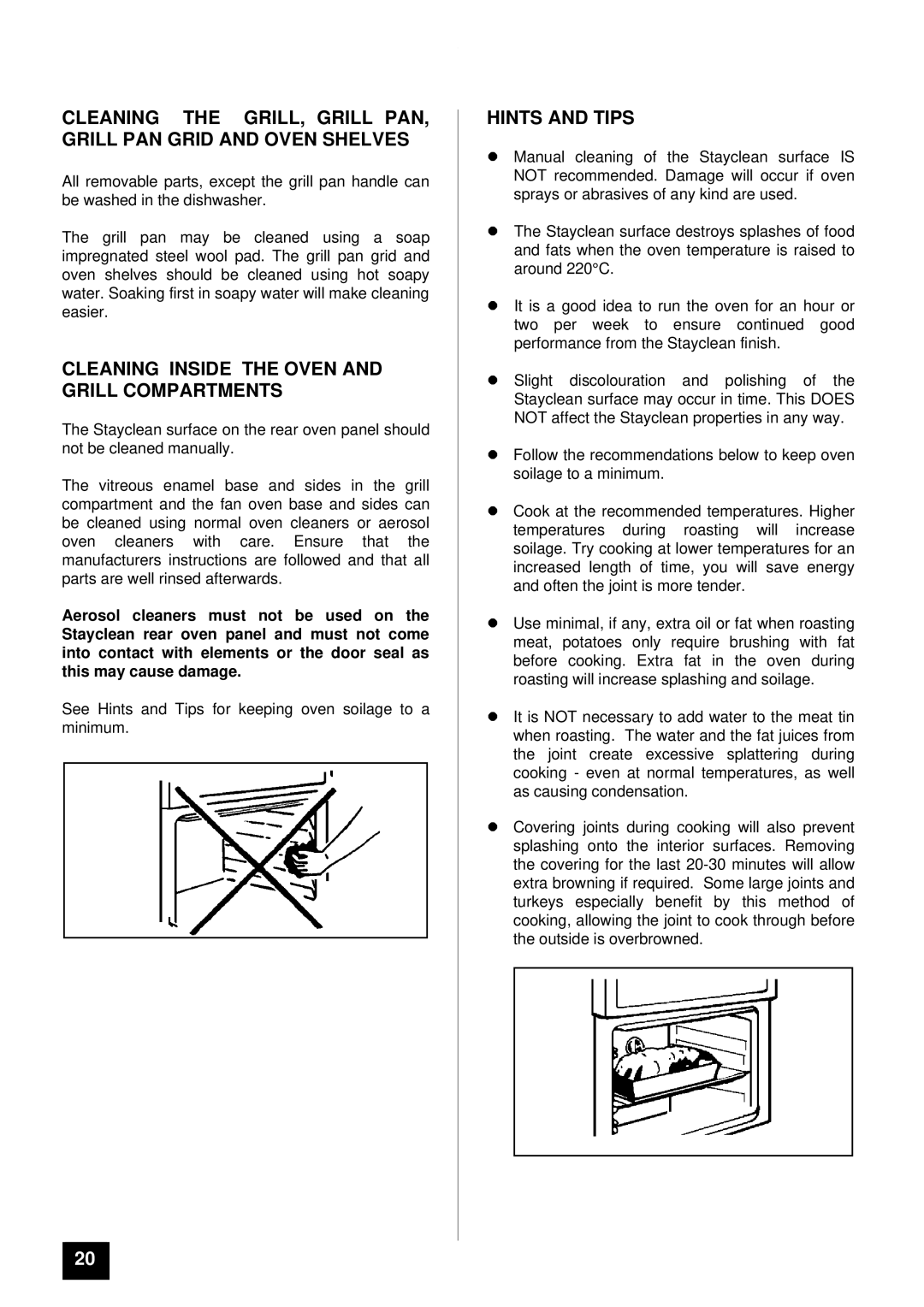
CLEANING THE GRILL, GRILL PAN, GRILL PAN GRID AND OVEN SHELVES
All removable parts, except the grill pan handle can be washed in the dishwasher.
The grill pan may be cleaned using a soap impregnated steel wool pad. The grill pan grid and oven shelves should be cleaned using hot soapy water. Soaking first in soapy water will make cleaning easier.
CLEANING INSIDE THE OVEN AND GRILL COMPARTMENTS
The Stayclean surface on the rear oven panel should not be cleaned manually.
The vitreous enamel base and sides in the grill compartment and the fan oven base and sides can be cleaned using normal oven cleaners or aerosol oven cleaners with care. Ensure that the manufacturers instructions are followed and that all parts are well rinsed afterwards.
Aerosol cleaners must not be used on the Stayclean rear oven panel and must not come into contact with elements or the door seal as this may cause damage.
See Hints and Tips for keeping oven soilage to a minimum.
HINTS AND TIPS
Manual cleaning of the Stayclean surface IS NOT recommended. Damage will occur if oven sprays or abrasives of any kind are used.
The Stayclean surface destroys splashes of food and fats when the oven temperature is raised to around 220°C.
It is a good idea to run the oven for an hour or two per week to ensure continued good performance from the Stayclean finish.
Slight discolouration and polishing of the Stayclean surface may occur in time. This DOES NOT affect the Stayclean properties in any way.
Follow the recommendations below to keep oven soilage to a minimum.
Cook at the recommended temperatures. Higher temperatures during roasting will increase soilage. Try cooking at lower temperatures for an increased length of time, you will save energy and often the joint is more tender.
Use minimal, if any, extra oil or fat when roasting meat, potatoes only require brushing with fat before cooking. Extra fat in the oven during roasting will increase splashing and soilage.
It is NOT necessary to add water to the meat tin when roasting. The water and the fat juices from the joint create excessive splattering during cooking - even at normal temperatures, as well
las causing condensation.
Covering joints during cooking will also prevent splashing onto the interior surfaces. Removing the covering for the last
20
